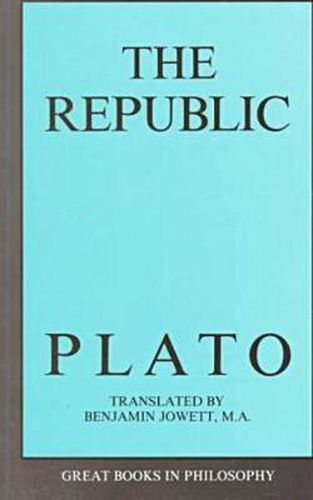Readings Newsletter
Become a Readings Member to make your shopping experience even easier.
Sign in or sign up for free!
You’re not far away from qualifying for FREE standard shipping within Australia
You’ve qualified for FREE standard shipping within Australia
The cart is loading…






Throughout the history of Western Civilisation many powerful works, penned by some of the greatest minds in philosophy, have influenced the development and evolution of political theory, but none has had the profound impact of Plato’s Republic . Written by one of the founding fathers of Western philosophy, The Republic , like most of Plato’s dialogues, sets the stage for debates that have occupied the minds of thoughtful persons for more than two millennia. Why does government exist? What is its nature and purpose? Who should govern, and how is this decision to be made? Why should we obey the law? Answers to these and other questions are developed by Plato amid the give and take of a dialogue between his protagonist, Socrates, and a circle of concerned intellectuals. Metaphysical, epistemological, and ethical considerations combine to create an ideal state next to which all existing regimes can be compared.
$9.00 standard shipping within Australia
FREE standard shipping within Australia for orders over $100.00
Express & International shipping calculated at checkout
Throughout the history of Western Civilisation many powerful works, penned by some of the greatest minds in philosophy, have influenced the development and evolution of political theory, but none has had the profound impact of Plato’s Republic . Written by one of the founding fathers of Western philosophy, The Republic , like most of Plato’s dialogues, sets the stage for debates that have occupied the minds of thoughtful persons for more than two millennia. Why does government exist? What is its nature and purpose? Who should govern, and how is this decision to be made? Why should we obey the law? Answers to these and other questions are developed by Plato amid the give and take of a dialogue between his protagonist, Socrates, and a circle of concerned intellectuals. Metaphysical, epistemological, and ethical considerations combine to create an ideal state next to which all existing regimes can be compared.